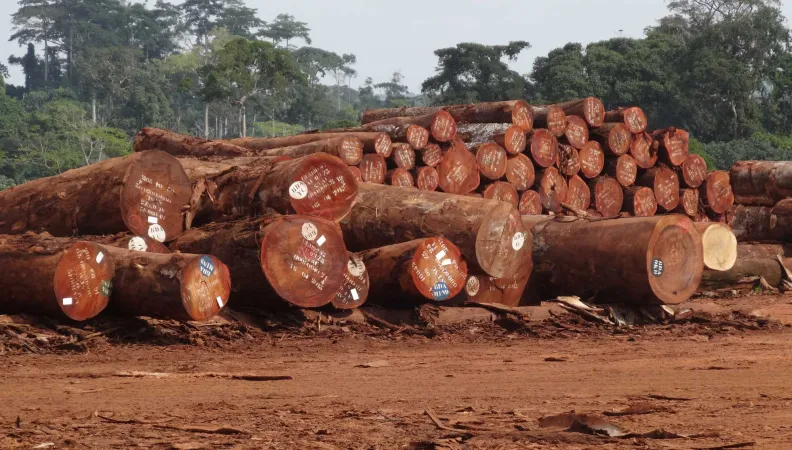Share the page
Promoting and formalising artisanal wood logging to reduce forest degradation (PROFEEAC)
Project


-
Project start date
-
Status
In progress
-
Estimated date of project termination
-
-
Project financing date
-
-
Financing duration
-
4 Years
-
Type of program
-
FFEM
-
Global financing amount
-
7 069 869 €
-
FFEM financing amount
-
2 000 000 €
-
Project lead member institution(s)
-
AFD
-
Country and region
-
Democratic Republic of the Congo, Cameroon
-
Location
-
Cameroun, République démocratique du Congo
-
Type of financing
-
Grant
-
Partners
-
GIZ
-
Beneficiaries
-
Center for International Forestry Research (CIFOR)



In Central Africa unregulated artisanal wood logging is endangering state-led efforts to sustainably manage the forestry resources. To reduce the resulting impact on forest degradation, the FFEM is supporting the PROFEEAC project. The goal : formalising and rationalising artisanal wood logging in Central Africa.
Context
Artisanal wood logging is very widely practised in Central Africa. However, this highly profitable business, which generates thousands of jobs, destabilises the implementation of national sustainable forestry management projects. These are focused on the industrial forestry exploitation model operated by concessionaires. Today, with the PROFEEAC project, CIFOR is seeking to formalise this artisanal forestry activity and make it sustainable in order to reduce the degradation of rural forests. In the longer term, legal artisanal wood logging could become a green and inclusive growth driver as this sector provides work for vulnerable populations, promotes traditional tenures in rural forestry, and encourages democratic local governance models.
Description
The project has five components:
- Assessing and monitoring forest degradation related to artisanal exploitation.
- Developing local regeneration and reforestation measures for woody species and agroforestry in selected areas.
- Supporting legal artisan exploitation and strengthening the capabilities of the operators.
- Regularising and making the most of artisanal wood logging in the development of decentralised regional bodies.
- Encouraging demand for legal sawmills at urban points of sale.
Outcomes
- Implementing a method of characterising and assessing forest degradation.
- Developing model agreements between the operators and traditional owners.
- Implementing and adopting systems to restore the forest by about a hundred beneficiaries in local communities
- Facilitating access to artisanal operating permits by the central and deconcentrated forestry administration
- Increasing tax receipts by 50% from artisanal exploitation
Innovative & exemplary character
This project aims to improve artisanal wood logging globally through the development of, and experience gained from, actual operations which range from the management of resources through to the demand for sawmills in urban centres. To facilitate integration of the sector into the formal economy, the project places particular emphasis on the use of economic incentives at various levels within the sector and on commercial, legal and technical assistance for legitimate actors. Through the experiences in formalisation led by the project in Cameroon and the DRC, the lessons learned may be applied at larger scale.
Sustainable Development Goals
ODD11 Sustainable cities and communities

ODD12 Responsible consumption and production

ODD13 Climate action



